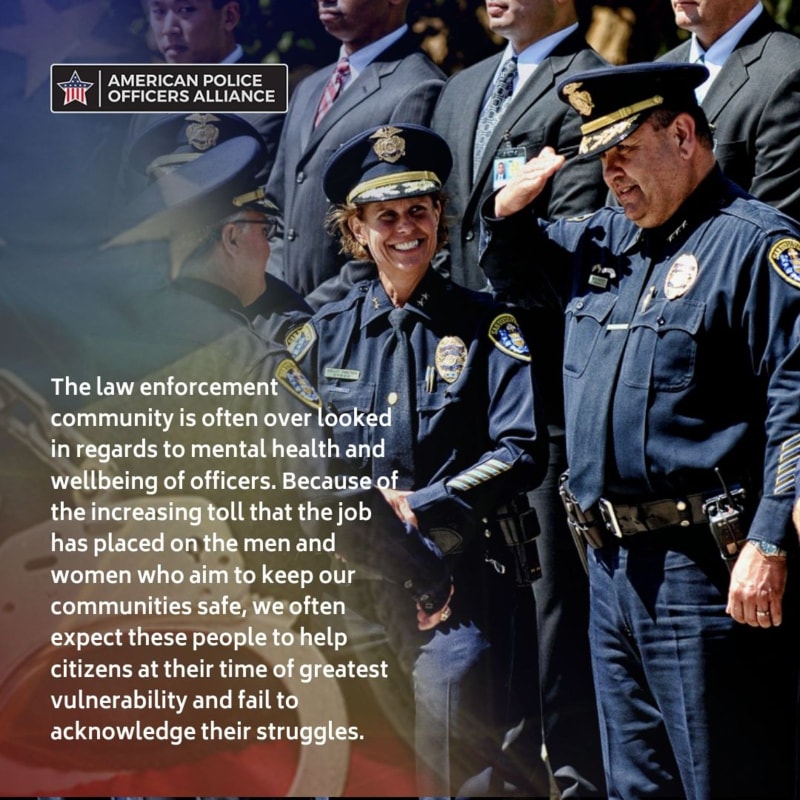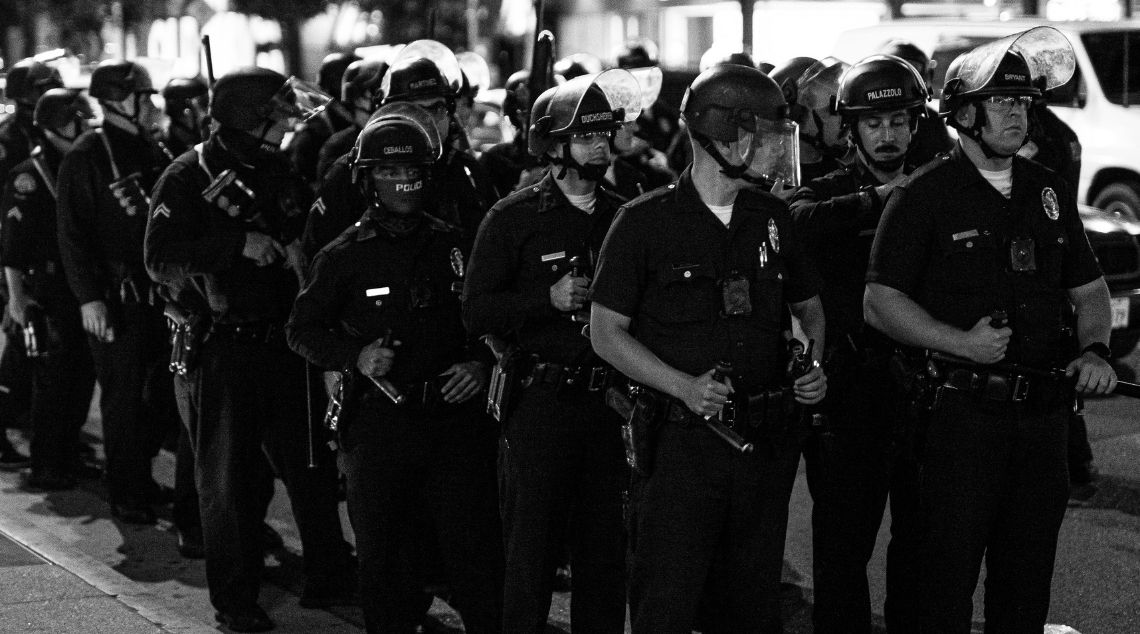The issue of mental health has become front and center in American society. Mental health has increasingly become a topic of discussion across the nation due to high-profile cases of ailments in professional sports figures and veterans suffering from PTSD. There is another profession that has often been overlooked in regards to mental health: the law enforcement community because of the increasing toll that the job has been placed on the men and women who aim to keep our communities safe. We often expect these people to help citizens at their time of greatest vulnerability to restore order and or to save lives when they are in danger.
Mental Health and Wellbeing of Police Officers
Have we ever taken the time to think about what goes into the mind of our law enforcement officers? Our brave men and women face varying scenarios from domestic disputes, drug overdoses, or even homicides. The increase of these police related calls are stemming from a lack of mental health resources being used to prevent certain situations. According to TalkSpace, out of the million people with mental illness, more than half have undiagnosed issues. When law enforcement officers deal with these extremely adverse conditions some do not realize they are at risk too for mental health issues such as substance abuse, anxiety, PTSD, depression and sadly suicide. This is due to the often traumatic nature that happens when responding to such calls.
Anxiety and Alcohol Use
A 2004 edition of the FBI Law Enforcement Bulletin, found on average, one out of every four officers surveyed sadly uses alcohol as a coping mechanism to deal with job-related challenges. This is a stark comparison to the general public in which eight out of 100 people use the former. This means that the law enforcement community has a three times greater risk of engaging in substance abuse than the general public. A 2010 study from Radford University found that law enforcement officers have a high divorce rate ranging from 19 to 26 percent depending on rank. The national average across other populations is 16 percent according to the study. A divorce could be the aftermath after an officer engaged in substance abuse. These statistics should be alarming for law enforcement leadership nationwide. The current culture practice of not paying attention to substance abuse and other societal issues affecting officers needs to change immediately.
Law enforcement officers are more hyper vigilant in their personal lives as well as on the job as a result of their interactions. What are the warning signs if an officer is having anxiety? According to the 2014 DSM V form, those are: fatigue, difficulty following conversations, snap or be on edge behavior, and intrusive thoughts. These can be early warning signs should be detected by law enforcement leadership and all efforts should be made towards early intervention-based treatment.
Post Traumatic Stress Disorder
The issue of Post Traumatic Stress Disorder (PTSD) is becoming another cause for concern amongst the law enforcement community. This disorder can be caused via a single call or a culmination of events over time. Events such as injuries or death to children, officer-involved shootings, and serious line of duty injuries can trigger PTSD amongst cops. According to U.S. Department of Veterans Affairs National Center for PTSD, the warning signs to watch are flashbacks, heightened startle response, avoidance behaviors, hypervigilance and self-destructive behavior.
Depression and Suicide
Depression and suicide are the most scariest mental health topics law enforcement officers could deal with. Untreated depression can lead to a law enforcement member to attempt and commit suicide. Nearly one in four police officers have suicidal thoughts at some point in their life according to the National Alliance on Mental Illness. Police departments that are smaller have four times greater than the national rate on suicides.
Law enforcement officer deaths by suicide have outnumbered line of duty deaths from 2016 to 2018. BLUE Help, a non-profit organization, compiled a report in December 2018 relating to the state of suicide in law enforcement. Some of the factors that lead to law enforcement suicides include a sense of doubt if they acted differently in a traumatic situation, a belief they can control any situation, and a sense of betrayal if they feel they were unfairly treated. Another reason law enforcement officers often commit suicide is because they have a fear of losing their job A third factor is retirement due to identity issues and not being able to cope with life outside of the job.
Creating Peer Support Groups

With all these risk factors there are resources available to departments that focus particularly on the area of law enforcement such as The Counseling Team International. This is a group of individuals whom can help departments create a peer support program so that law enforcement officials can feel safe and welcome without feeling judged. These programs have been created by partnerships between law enforcement departments and individuals whom are specially trained in the area of mental health to deal with the dynamic challenges faced by first responders.
Any activity in a peer group is kept confidential. This allows the members of the department to feel safe and to be able to address without retaliation from superiors. Some characteristics of good peer counselors are: humility, integrity, having the ability to listen, provide emotional support, and be non-judgmental. The characteristics of peer support group leaders ensure that officers will have a safe and welcoming place to come forward.
Importance of Peer Wellness Checks
A great example of how a peer wellness check was done in season 7, episode 21 of NBC’s Chicago Fire. The episode portrayed a probationary firefighter raising concerns related to how a firefighter is acting prior to his retirement. The example of the firefighter speaking up on the person’s well-being prevented a potential suicide. The Chicago Fire example shown that feelings of inadequacy and of the unknown could affect police officers upon their retirement.
No one serves alone when they swear an oath to become a law enforcement officer. It takes all of us to prevent suicides among law enforcement officers and make mental health a priority for not just the officers, but their families.
Image Credit: Photo by Andrew Donovan Valdivia on Unsplash









